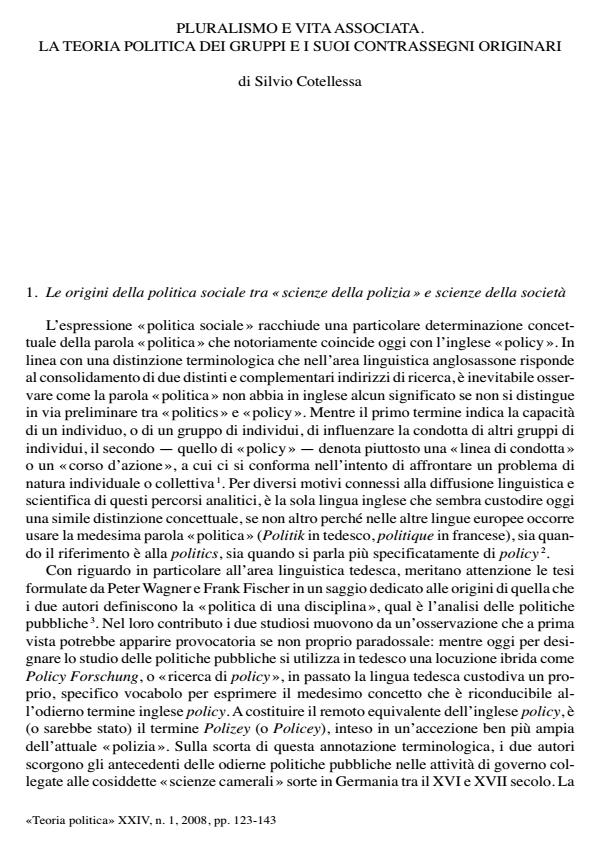Pluralismo e vita associata. La teoria politica dei gruppi e i suoi contrassegni originari
Titolo Rivista TEORIA POLITICA
Autori/Curatori Silvio Cotellessa
Anno di pubblicazione 2008 Fascicolo 2008/1 Lingua Italiano
Numero pagine 21 P. 123-143 Dimensione file 488 KB
DOI
Il DOI è il codice a barre della proprietà intellettuale: per saperne di più
clicca qui
Qui sotto puoi vedere in anteprima la prima pagina di questo articolo.
Se questo articolo ti interessa, lo puoi acquistare (e scaricare in formato pdf) seguendo le facili indicazioni per acquistare il download credit. Acquista Download Credits per scaricare questo Articolo in formato PDF

FrancoAngeli è membro della Publishers International Linking Association, Inc (PILA)associazione indipendente e non profit per facilitare (attraverso i servizi tecnologici implementati da CrossRef.org) l’accesso degli studiosi ai contenuti digitali nelle pubblicazioni professionali e scientifiche
Pluralism and associative life: The groups theory of politics and its primary labels ABSTRACT: This article argues that the enduring lack of consensus on a very basic «unity of analysis » in the social sciences is highly dependent on the socio-political diversification of the associative life. In order to found this historically and theoretical notion, this essay explores the closer relationship between social policy and social sciences from his emergence in the German tradition of the « Cameralists », through its transformations in the late 19th century during the period of « methods controversy » (Methodenstreit), up to the contemporary groups theory as a crucial focus of investigation in sociology and political science. The core proposition in this article is that analytical diversification, topical specialization, and theoretical progress of existing disciplines cover different types of associative life in the field delineated by the pluralist theory « label ».;
Silvio Cotellessa, Pluralismo e vita associata. La teoria politica dei gruppi e i suoi contrassegni originari in "TEORIA POLITICA" 1/2008, pp 123-143, DOI: